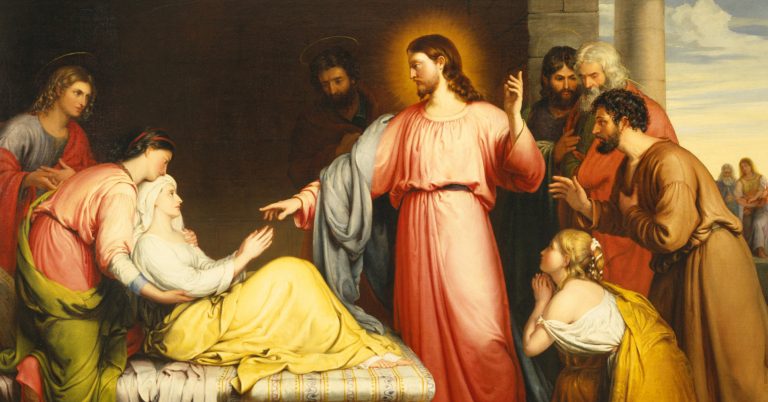By Fr. Daniel Cardó
Fr. Daniel Cardó received his doctorate from Maryvale Institute and holds the Benedict XVI Chair for Liturgical Studies at St. John Vianney Theological Seminary in Denver. He is also visiting professor at the Augustine Institute. Fr. Cardó is the author of What Does It Mean to Believe?: Faith in the Thought of Joseph Ratzinger.

The act of Christian faith has an essentially tangible character that constitutes perhaps the most serious challenge for those who take the leap of faith: to believe “that the fate of all history, our fate, depends on one individual: Jesus of Nazareth.”
By believing that everything depends on one individual man, Jesus of Nazareth, the Christian faith affirms its originality in the context of the history of religions, and at the same time, its greatest challenge: the eminently personal character of faith. This maintains that “only the absolute” is God, but at the same time this absolute has the characteristic of being “relative,” Creator and revealer, or as previous tradition says, “Person.” God is not an abstract idea, an eternal spirit far from us, an impersonal first mover: God is a personal being.
The name of God manifests His personal being: “God has a name, and God calls us by our name. He is a Person, and He seeks the person. He has a heart, and He seeks our heart.” However, the name of God that was revealed to Moses in the burning bush does not tell us everything. Only in Jesus, in His name as the expression of His person, does God fully communicate His message about Himself. His name contains the word Yahweh, but adds His mission: Yeshua—to save. “‘I am who am’—thanks to Jesus, this now means: ‘I am the one who saves you.’ His being is salvation.” This salvation is offered to us in the person of Jesus Christ, through the gift of faith.
The personal dimension of faith remains fully manifested in Jesus Christ. In our relationship with Him, we can understand the depth of a fundamental affirmation by Ratzinger: the central formula of our Christian faith “is not ‘I believe in something,’ but ‘I believe in you.’” As Christians we do not believe in a vague and distant divinity, in some spiritual foundation of the universe, but in God as a real person with whom we have a relationship of true communion and discover the meaning of our lives.
Needless to say, Jesus Christ is not only a man with a privileged relationship with God. He is God made man, and therefore the full answer to the desire for the infinite that dwells in the human heart; an answer that is both infinite and close. We can see the meaning of the world in His life, as a person whom we can encounter. From this revelation, we can live with faith as the basis for a new existence. We can understand why faith is both “standing firm” and “understanding,” and we are dazzled by the newness of this life.
This personal dimension of faith frees it from all possible refuge in limited theories and brings it to the realm of confidence. To say, “I believe,” means to say, “‘I trust you,’ or even as much as ‘I rely upon you.’” This also gives faith the simplicity that wells up from love and gives us the fundamental certainty for living, even in the midst of difficulties. “There will be moments in life when, in all kinds of gloom and darkness, faith falls back upon the simple, ‘Yes, I believe you, Jesus of Nazareth; I believe that in you was revealed that divine purpose which allows me to live with confidence, tranquility, patience, and courage.’”
It bears repeating that we do not believe that faith is easy or that everything will always be clear to our senses. We believe because we trust, and from that trust we accept what is told to us. “As long as this core remains in place, man is living by faith, even if for the moment he finds many of the details of faith obscure and impractical.”
You Might Also Like
In What Does it Mean to Believe?, Fr. Daniel Cardó outlines the different insights of Joseph Ratzinger on the act of faith—understood as a personal, integral, and ecclesial act. Cardó provides an organic view of the rich contribution made by the Pope Emeritus in his many theological works.
